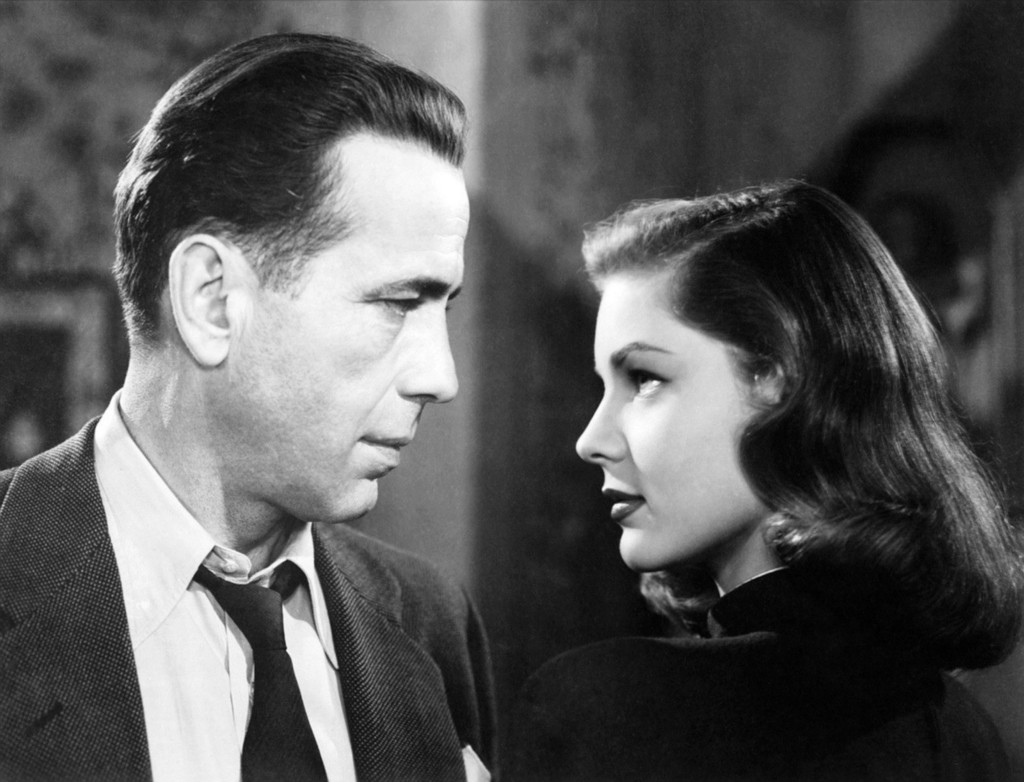essays
Vladimir Nabokov Taught Me How to Be a Feminist
What I gained from finding out that my favorite writer wasn’t the man I thought he was

When I was in college, I took a seminar on the novels of Vladimir Nabokov, which kicked off my love affair with his writing. I was nineteen or 20, an impressionable age, and at the time, I was given to accepting confident pronouncements as fact, allowing them to color my understanding of the world without further interrogation. Indeed, many of these pronouncements still hold a subconscious sway over my worldview today, though when I’m able to recognize one, I do at least try to subject it to new scrutiny. (Some gems from the era include: my dad telling me that you have to run out the charge on a phone before charging it again, or you’ll mess up the battery; my study abroad house mother exclaiming that of course I got sick, because I went to sleep with wet hair.)
One day a journalist who’d known Nabokov and his wife Véra personally came to visit our class — the kind of entertaining educational bonus-round that I imagine was more common for people who didn’t go to school in the middle of Iowa. For me, it stuck in the mind. The journalist had only met the couple once or twice, at a hotel where he was conducting an interview with the writer, but the casual nature of their friendship did nothing to subdue my response. I’m not sure why; maybe I was just star-struck at the idea of spending time with a literary icon, even by proxy. But more likely, I think, I had been waiting for someone to say what the journalist told us: that no, Nabokov wasn’t some aristocratic nightmare issuing grand pronouncements while his wife limped through the background serving tea. That instead, Vladimir was sensitive and humane, a caring spouse who knew every ounce of Véra’s great worth, and who took her opinion seriously. I found it intoxicating to learn that a historical “great man” understood the contributions of his family members, the silent but vital role they played in his accomplishments.
It’s well-known among Nabokov fans and scholars that he owed much of his artistic success to Véra. She was famously known to lick his stamps, answer his mail, and stand at the front of the classrooms in which he taught, fielding questions from the co-eds and only passing them on to Himself, seated behind her, if she deemed them worthy. Every writer since has probably wondered what more they could accomplish if only they had a Véra of their own, and doubtless many gifted and prolific female writers who have children and day jobs in addition to their literary work have wondered whether Vladimir could possibly have been as bright as all that if he couldn’t even write a novel and also run a load of laundry. So I was happy to hear that he repaid her labor with devotion; it offered a sheen of moral authority to someone I desperately wanted to go on admiring.
The journalist made another, more specific claim, too, and it’s actually this one that stayed with me the most tenaciously. He said that, at Véra’s own request, Vladimir promised that he would never use her as a character in one of his novels.
This idea became such an article of faith for me that when I studied abroad in St. Petersburg a few years later, I picked a fight with a classmate who had the audacity to suggest that a woman in an early Nabokov story we’d just read might be based on Véra. I insisted this was impossible, then insisted again, despite my not-quite-fluent ability to explain why in a class held entirely in Russian. But — the other student pointed out — she’s an émigrée, and has the same family history. I didn’t have any such textual evidence, but I refused to back down; in fact, I remember getting so angry about this classmate’s position that I slammed my hand down on the table several times, all because I wanted to take Nabokov at his word.
Inside my young undergraduate heart, this idea unlocked something. He couldn’t be all bad if he was a good husband.
It’s undeniable that Véra at least influenced her husband’s writing. She stopped him from burning the manuscript of Lolita in despair, and probably offered him comments, suggestions, inspiration, if only by being so close at his side. She devoted her life to his work, and there is no erasing that deep of a mark. But there is a difference between those contributions — given freely, as wife and vocation — and agreeing to appear in a novel, where your fate is decided for you. Particularly when it’s a novel by Nabokov, who was famous for abusing his characters rather torturously. Call it what you want: a god complex, the work of a control freak, but part of the joy Nabokov took in playing with form, with expectation, and with the trustworthiness of his narrators, came from the way that he reveled in making his characters look like fools.
Véra would’ve known this better than anyone, which is what makes both her request and his acquiescence noteworthy. She and her husband organized their entire lives around one shared principle: giving Nabokov the greatest possible freedom with which to pursue his artistic gift. And so his willingness to relinquish even one small piece of that freedom for Véra suggested to me that he loved her very much. Inside my young undergraduate heart, this idea unlocked something. He couldn’t be all bad if he was a good husband.
In the twelve years after that visit from the journalist, I read more Nabokov, and re-read him, alongside many other worthy writers. I finished college, spent some years in the working world, and attended an MFA program. I wrote a novel. And for whatever reason, I never stopped believing that Nabokov fundamentally respected his wife.
One day I was in my house in Tucson, where I spend most of my time — I work from home, writing fiction, drawing cartoons, and doing copywriting for a large tech company to pay the bills. (My husband is great, but is more of an equal partner than a Véra-level provider; he has a good job too, so he doesn’t lick my stamps, and we trade off doing the laundry). I was leafing through a copy of the New Yorker, and happened across a review of Letters to Véra, a collection of Vladimir’s correspondence with his wife, both before and after his rise to literary success. Oh, I love them, I thought, very much the way someone might react to a profile of Jay-Z and Beyoncé. And in that same voyeuristic spirit, I appreciated that some of the new gossip I found in the letters confirmed my existing suspicions about the couple: for instance, I’d always seen Véra as a woman hell-bent on supporting Vladimir, and felt vindicated by the New Yorker writer’s note that she burned many of her own letters so the historical focus would remain tightly trained on her husband.
What I didn’t expect from the review was a casual mention of Vladimir Nabokov’s torrid affair with a dog groomer and fellow émigré, which almost blew up his famous marriage and was apparently immortalized in many of his letters.
I couldn’t believe it. In fact, I was so shocked that I threw down the magazine in a huff (sorry New Yorker!) and began storming around the house, as if I’d received very personal bad news. I felt betrayed, angry, confused: how could he? Nabokov of all people! And then I felt ridiculous for ever having believed that he — Nabokov, of all people! — would not have had one or many affairs. He was, after all, a man with a rather elevated opinion of himself, known for writing sexually explosive novels (most people would point to Lolita, here, but I think we can also look to Ada, or Ardor); in historical context, it’s not particularly shocking that he’d also be a bit of a cad. As soon as I calmed down enough to form sentences, I texted my best friend: Can you believe this?? And though I don’t remember exactly what she replied, I imagine it was probably something along the lines of: …yes?
Why, anyway, did I care at all? What difference did it make to me?
I’ve always taken pride in being the kind of woman who isn’t cowed by men: before I knew what a concept like “patriarchy” meant I intuitively felt its effects, seeing other girls grow fearful of certain abrasive male teachers or classmates and retreat into silence or lose their confidence in school. Some of them fought back, of course, but many more wore their femininity like a mask, pretending to be the kind of people who had no opinions and never made waves. Men liked that mask, I noticed. They rewarded those girls with praise and ease, or simply ignored them — which was often good enough for the girls. They weren’t looking to prove anything, after all. They were looking for a way to slip under the radar and go back to their real lives.
It can be useful to know how to become invisible, and I can’t pretend I didn’t occasionally exercise that option myself, deciding that a fight wasn’t worth it and sitting back, blinking my eyes and chewing my lip until I ceased to register. But most of the time, I preferred being seen. The male teachers who intimidated my friends didn’t seem so tough to me: sure, they used sarcasm as a weapon, but I used confidence and facts. Those men, those boys, were just people to be argued with, and I found it more satisfying to get them to concede their lazy points than to simply know in my heart they were wrong. In return, I received appraising looks and grudging admiration — not to mention As on my report card. I liked flexing my intellect this way, against a hard surface that would eventually break under pressure. I liked being right. I liked cracking hard nuts. That there might be a cost to all this force I exerted did not occur to me for a long time.
But let me tell you, eventually you do get tired.
Loving Nabokov as a woman is a little bit like being a ballsy girl in a high school classroom, for the rest of your life. You know that, in all likelihood, he wouldn’t have thought much of you, no matter how scrupulously you pronounced his name (apparently a point of contention with his co-eds when he taught university; the correct pronunciation is Nah-BO-kov, not NAH-bo-kav). He would’ve palmed you off on Véra, taken your praise and smirked behind your back. This, I learned, was the dark underbelly of being a “cool girl” who can handle tough men: you have to prove yourself with each and every one of them, and after a while, it can stop feeling worth it — especially if the object of your interest is dead, and thus beyond persuasion.
Loving Nabokov as a woman is a little bit like being a ballsy girl in a high school classroom, for the rest of your life.
I’ve never wanted my politics to guide my experience of art, in particular — I prefer art to be personal and transcendent. But I also believe that politics are personal, and shape your experience of everything. In college, my ability to perceive Nabokov as a devoted husband reduced his political charge, and therefore offered me a simpler relationship to his art. I could be moved by the ghost of Lolita’s beloved face, and by the anguish of John Shade’s drowned daughter in Pale Fire, all without paying attention to the fact that he probably wouldn’t have respected my intellect — a fact I found unforgivable in other men. You might say this was right, that literature should always and only be judged on its own merits. But can’t we all agree that’s naïve? Ignoring a political problem is a political choice, too.
What I wanted was an indication of fairness in the world, a sense that some men understood their power to be unnatural and tried to compensate. And though it would never have occurred to me to ask for this particular fairness from Nabokov, I thought I’d found it in him all the same. When that journalist visited our seminar and told us of the writer’s private kindness and honor, I was 19, and I believed him — believed, even, things that he didn’t necessarily say. For instance, that Nabokov’s promise to Véra meant that he never strayed from or betrayed her. And that this meant I was safe with his writing, fully allowed to disappear inside his words without questioning the man who wrote them. Believing that his prodigious talent was all that mattered, since it did matter to me, so very much.
But letting something inside of you that way, designating it as divine, makes you vulnerable to it. And if you later discover that the object of your faith is imperfect, the way I eventually discovered the truth about Nabokov’s marriage, it has the power to crack you open. Maybe it’s foolish, but it’s true: Nabokov’s affair agitated all my tender places, the seat of my fragility, which is my sense of honor and shame. It made me aware of how much I crave goodness, and rely on the places where I think it resides. While I stormed around my apartment and raged to my friend — How could he? and Can you believe this? — I was mostly angry at myself for having been such a fool, for so long.
When my passions had cooled a bit, after reading that fateful review, I felt a familiar stirring of narrative interest in the back of my mind. What kind of person must Véra have been, I wondered, to withstand all this without losing faith in her husband? What did she want out of the marriage, and what did she get? Just proximity to power, or something more?
I wondered, too, about the dog groomer who almost usurped her: what kind of a woman was she? Did she grieve the loss of her affair, or was she relieved by it? Did she let go without a fight? I started taking notes about these women, inventing histories, toying with voice. The initial shock to my system was gone, and in its place was an energy and urgency not unlike the feeling of meeting someone for the first time and knowing you will fall in love with them.
The disappointment I felt taught me something valuable about my expectations for novelists: that maybe I should lower them.
Nabokov will always be important to me, and I’ll probably continue reading him for the rest of my life, returning to his novels and short fiction with the same rush of affection and awe that I felt from the beginning. But he’s no longer untouchable in my mind, no longer that same immovable object of creative energy and holy matrimony. Which is fine. The disappointment I felt on the day when I discovered he cheated on Véra taught me something valuable about my expectations for novelists: that maybe I should lower them. After all, artists are only human. They are imperfect. They err. And I began to reevaluate my expectations for myself, too, thinking that perhaps if a timeless artist can fail in a very human way, then perhaps I, a human prone to failure, can also create timeless art.
In time, my notes about the women who touched Nabokov’s life took on a life of their own, moving beyond any sort of biography until they took on a new form, and became a novel. I wrote the book in a kind of fever over the course of several months, coming back to it in the middle of the night, sneaking off to spend time with it while on vacation. I refused to talk about it with anyone in my life, referring to it only as my “secret affair manuscript” before changing the subject with a knowing smile. My anger, it turned out, became something useful to me once I stopped obsessing over it. Not a piece of armor, or a cloak of invisibility, or even a weapon, but something potentially more powerful.
A story.








